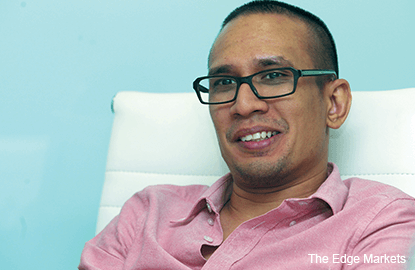
This article first appeared in Personal Wealth, The Edge Malaysia Weekly, on Jan 18 - 24, 2016.

Conventional wisdom states that in times of uncertainty, invest in lower-risk assets. This adage seems to be the underlying principle of the Agro Private Equity Fund, which was launched on Dec 11 last year.
Agro Private Equity Fund is managed by Asia Cornerstone Asset Management (ACAM), previously known as ZB Global Capital, an asset management company based in Hong Kong.
The people behind ACAM are directors Datuk Seri Marcus Liew and Datuk Seri Michael Xavier. Liew and Xavier also hold the top management posts at Agro Equities Bhd, an investment company that trades and exports acquaculture products.
Agro Equities is also involved in the production and breeding of ornamental and food fish as well as the supply of fish and aquariums to commercial buildings, and is the management partner of several joint-venture projects with the Ministry of Agriculture and Agro-based Industry. Liew and Xavier bought ZB Global Capital last November in their own capacity and soon after, launched the Agro Private Equity Fund.
The focus of the fund is investing in fundamentally sound agriculture and acquaculture small and medium enterprises (SMEs) in Asia-Pacific, specifically those in Asean. This is because Liew and Xavier are bullish on the agriculture and aquaculture sectors despite softening global growth. They hold the view that agricultural and aquacultural products, which are mainly basic foods, will always be in demand, even when there is an economic slowdown as they are less cyclical and prices remain relatively stable.
Compared with investing in technology companies, which is seen as high-risk, high-return, investing in the agro sector is lower risk. "This is unlike investing in technology companies, where you are investing in something you are not quite sure whether it will be successful. If it is successful, there will be a lot of money to be made. But then looking at the risk side, there are many technology companies that have failed," says Xavier.
Agro Private Equity Fund expects to provide participating shareholders a cumulative 10% dividend on an annual basis, with a minimum investment of HK$500,000 (RM282,878) and a lock-in period of three years. The fund, which is domiciled in the Cayman Islands, aims to achieve capital and equity appreciation by investing in companies at the pre-IPO, start-up or merging stage and entities in the agriculture, aquaculture and related industries. The fund's details have been deposited with the Securities Commission Malaysia.
Its fees include an annual management fee of 2% (out of the committed capital of HK$500,000) and an administration fee of US$18,000 per annum. The fund's assets under management currently stand at HK$100 million.
Liew's optimism that the fund will do well is premised on the strong and growing demand for basic food items, especially during festive seasons. "Margins are climbing on a year-on-year basis. We are dealing with basic commodities, not luxury items," he observes.
The Agro Private Equity Fund is a low to medium-risk fund as it invests mainly in established SMEs with strong fundamentals, quality assets, good management and a three-year audited track record, he says.
"Most SMEs in Malaysia are fundamentally sound. But businesses are facing some challenges from rising costs due to factors such as the implementation of the Goods and Services Tax. This will impact their bottom line and cause cash flow issues," he adds.
"This is where we come in. We want to buy into fundamentally sound companies, build them along the way and aim to list them eventually."
Xavier points out that although the fund also looks at start-ups, as mentioned in the fund's private placement memorandum, they are not its main focus.
Liew believes that local investors will be able to "relate" to the fund as it is essentially a Malaysian-centric fund that mainly looks at agriculture and aquaculture businesses in the country. "We are familiar with the local business scene. So, our first foray will be here. We will look further [into Asean and Asia-Pacific] if there is a need. I believe this is a positive prospect for local investors as it will be easier for them to track the performance of the acquisitions made by the fund," he says.
Save by subscribing to us for your print and/or digital copy.
P/S: The Edge is also available on Apple's AppStore and Androids' Google Play.